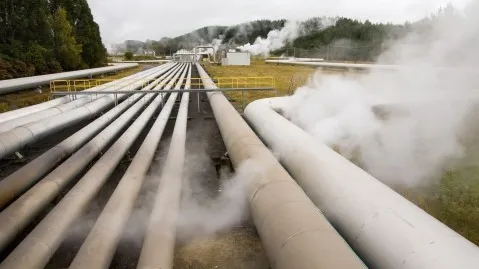
Pakistan will continue gas reliance in next decade
Gas-fired power will contribute an average of 31% to its power mix, Fitch Solutions projected.
Pakistan is expected to continue its reliance on natural gas as Fitch Solutions projected it will contribute an average of 31% in the next ten years.
In 2022, Fitch estimated that gas-fired power made up 36% of its generation mix.
“As domestic production is insufficient to meet the market's demand, Pakistan is a net importer of natural gas through pipelines and liquified natural gas (LNG) shipments,” Fitch noted in a report.
“As a result, Pakistan, with its deteriorating economic situation, is highly exposed to elevated spot LNG prices on the international market since the Russian-Ukraine war.”
Read more: Pakistan blackouts highlight ‘urgency’ of hydropower projects
Its power sector expansion is hindered by the country’s unreliable and unstable power grid as well as its ability to secure fuel feedstock.








![Cross Domain [Manu + SBR + ABF + ABR + FMCG + HBR + ]](https://cmg-qa.s3.ap-southeast-1.amazonaws.com/s3fs-public/styles/exclusive_featured_article/public/2025-01/earth-3537401_1920_4.jpg.webp?itok=WaRpTJwE)
![Cross Domain [SBR + ABR]](https://cmg-qa.s3.ap-southeast-1.amazonaws.com/s3fs-public/styles/exclusive_featured_article/public/2025-01/pexels-jahoo-867092-2_1.jpg.webp?itok=o7MUL1oO)









 Advertise
Advertise


